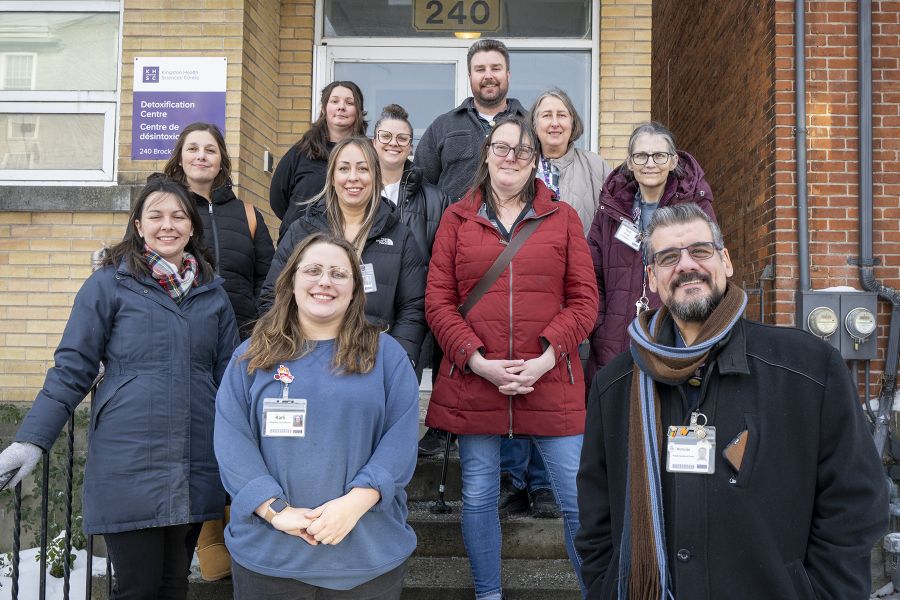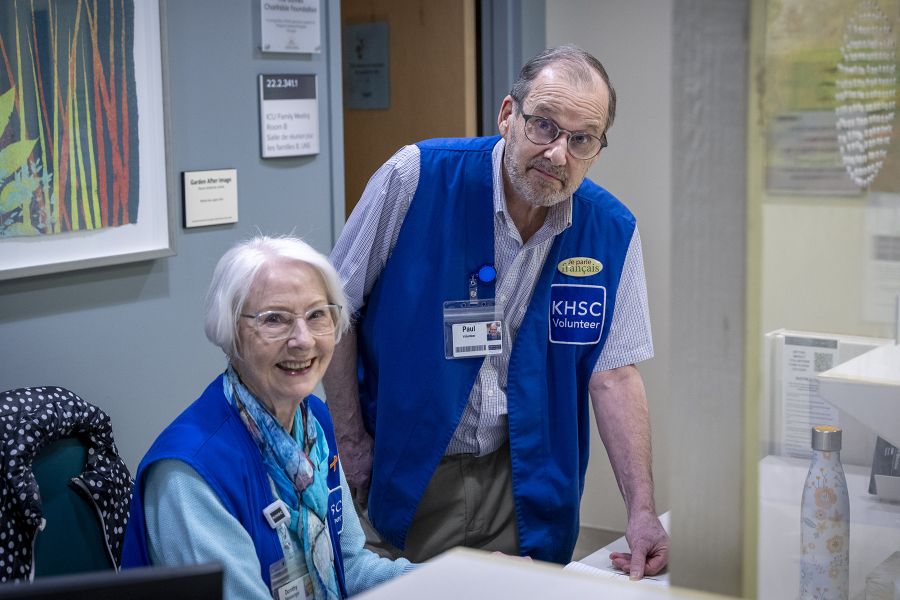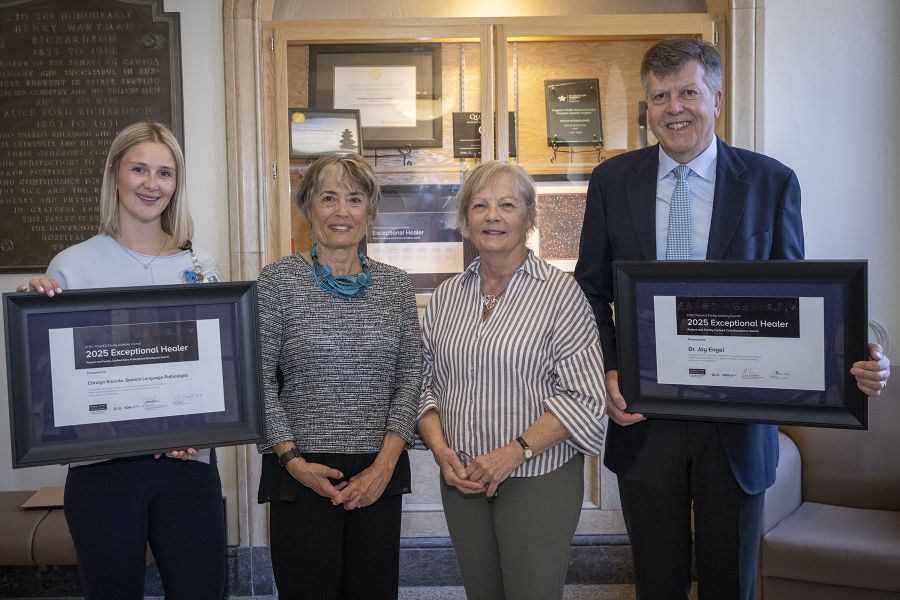Want to track the movement of your baby before it's born? There's an app for that. How about keeping an eye on mom's health after that baby arrives? There's an app for that too and both of them were created by our own Dr. Graeme Smith and his team in the MotHERS Program here at Kingston General Hospital and Queen's University.
“The overarching goal of the program is to improve mother's health through education, research and screening,” says Smith, a high-risk obstetrician. “We help women who are thinking about getting pregnant, are pregnant or are now new mothers stay up-to-date on the latest medical information.”
And this is where the new smartphone applications come in. The newest one is called Maternelle and it just hit the market a few weeks ago. It's for iPhones and was created with the help of PARTEQ Innovations at Queen's.
“Once the baby is born a lot of the focus swings away from the mother but it's crucial her health be maintained too,” says Smith. “This app allows mom to track her own health indicators such as blood pressure, weight gain or loss and other medical data.”
Maternelle then allows users to easily share this important information with their family doctor. The app also allows families to enter and track the immunization records of their children.
Maternelle picks up where Smith's other app left off. The Baby Movement app is a tool for tracking fetal movement in the womb during the third trimester. The app reminds you to touch the screen each time you feel the baby move over a two or 12-hour period.
“You should never go to bed wondering if your baby moved that day,” says Smith. “This app takes out the guess work and gives you a good record you can easily share with your family doctor if needed.”
The Baby Movement app is available for iPhones and Blackberries.
These useful apps are not the only cyber supports the MotHERS program offers though. The program also has an interactive website dedicated to the health of mothers. It's loaded with tools women can use to keep watch on their own health, as well as links and information on topics ranging from nutrition and exercise to contraception and car seats.
“Modern technology is now providing us with a real opportunity to be innovative and create electronic tools people can use to take charge of their own health which is exciting,” says Smith.
Along with these modern tools he's delivered, Smith also runs an internationally unique postpartum maternal clinic here at KGH with his wife and fellow obstetrician Dr. Susan Chamberlain.
Once a week they see women who have experienced some kind of complication during their pregnancy, such as gestational diabetes or hypertension or preeclampsia.
About 20 per cent of the women who give birth at KGH each year are referred to the clinic. They are invited to come back six months later for the consultation which includes a physical examination, some blood work and a discussion.
“I sit down with them and go through anything in their history or physical exam that is something to work on, such as reducing heart disease risk factors,” says Smith. “Pregnancy is a time when we can take a good measure of a woman's overall health and it's a chance to prevent big problems down the road.”
Smith also collects valuable information along the way to help with his ongoing research but he says it's mainly a health care service his team is providing.
“Overall, the idea with the apps, the website and the clinic is to get women to be proactive and to get the ball rolling,” he says. “I give them some things to think about and follow up on and from there it's up to them and their primary care giver to keep the ball rolling, which we hope they will do.”
For more on the MotHERS program and the services it provides, including the apps it's created, visit www.themothersprogram.ca.



